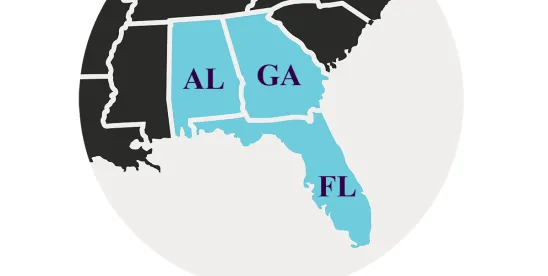CPAWorld is an absolutely fascinating place.
So many incredible storylines always intersecting. And the Czar at the center of it all.
Enjoyable beyond words.
So here’s the latest.
As I reported yesterday NCLC is seeking to intervene before the Eleventh Circuit Court of Appeals in an apparent effort to seek an en banc re-hearing of the Court’s determination that the FCC exceeded its authority in fashioning the one-to-one rule. If successful, the NCLC could theoretically resurrect the rule before the one-year stay runs that the FCC put into effect following R.E.A.C.H.’s emergency petition last month.
So, in theory, one-to-one could be back in January, 2026 after all.
So let’s back up to move forward and make sure everyone is following along.
Way back in December, 2022 Public Knowledge–a special interest group with high power over the Biden-era FCC–submitted a proposal to shut down lead generation by banning the sale or transfer of leads.
I went to work trying to spread the word and in April, 2023 the FCC issued a public notice that was a real headfake— the notice suggested it was considering only whether to ban leads that were not “topically and logically” related to the website at issue. Most people slept on this–and many lawyers in the industry told folks this was no big deal– but I told everyone PRECISELY what was at stake.
Regardless of my efforts industry’s comments were fairly week as very few companies came forward to oppose the new rule.
In November, 2023–as only the Czar had correctly predicted– the FCC circulated a proposed rule that looked nothing like their original version– THIS version required “one-to-one” consent, just as I said it would.
Working with the SBA, R.E.A.C.H. and others were able to convince the Commission to push the effective date for the rule from 6 months to 12 months to give time for another public notice period to evaluate the rule’s impact on small business.
This additional six months also gave time for another trade organization to challenge the ruling in court (you’re welcome).
Ultimately with the clock winding down the final week before the rule was set to go into effect January 27, 2025 R.E.A.C.H. filed an emergency petition to stay the ruling with the FCC.
On Friday January 24, 2025 at 4:35 pm the FCC issued the desired stay— pushing back the effective date for up to another year. Twenty minutes later the Eleventh Circuit court of appeals issued a ruling striking down the one-to-one rule completely.
Now the NCLC enters and is seeking to reverse the appellate court’s decision and reinstate the rule. To do so it would need to:
- Be granted an unusual post-hac intervention; and either
- Be granted an unusual en banc re-hearing and then win that re-hearing; or
- Be granted an unusual Supreme Court cert and then win that Supreme Court challenge.
As anyone will tell you, every piece of this is a long shot.
Still, however, it is possible.
For instance the Eleventh Circuit standard for en banc review is high but not overwhelmingly so:
“11th Cir. R. 40-6 Extraordinary Nature of Petitions for En Banc Consideration. A petition for en banc consideration, whether upon initial hearing or rehearing, is an extraordinary procedure intended to bring to the attention of the entire court a precedent-setting error of exceptional importance in an appeal or other proceeding, and, with specific reference to a petition for en banc consideration upon rehearing, is intended to bring to the attention of the entire court a panel opinion that is allegedly in direct conflict with precedent of the Supreme Court or of this circuit. Alleged errors in a panel’s determination of state law, or in the facts of the case (including sufficiency of the evidence), or error asserted in the panel’s misapplication of correct precedent to the facts of the case, are matters for rehearing before the panel but not for en banc consideration.”
To be sure the Eleventh Circuit’s ruling was quite extraordinary. Turned appellate review of agency action more or less on its head. A complete departure from established analytic norms in such cases.
But, as I have said multiple times, we are living in a whole new world right now. So what was weird and inappropriate six months ago may be very much the new paradigm today.
Of course being granted the rehearing in this environment would just be step one. NCLC would then actually have to win the resulting en banc review– which is by no means guaranteed even if the rehearing is granted.
But from a timing perspective all of this could theoretically happen within one year.
If NCLC is denied a rehearing they could theoretically seek Supreme Court review which could theoretically result in a ruling sometime in May or June, 2026– in the meantime the FCC’s stay of proceedings would likely be extended in light of the Supreme Court taking the case. But the odds of the Supremes taking such an appeal and then reversing the one-to-one rule seem astronomically small given the current makeup of the Court.
Then again, with Mr. Trump seizing control of independent agencies the rules regarding how courts review regulatory activity by these agencies just became INSANELY important. Again, we have a whole new paradigm and the Supremes may theoretically look for any vehicle to opine on the subject ahead of potentially catastrophic separation of power issues set up by Mr. Trump’s executive order this week.
The bottom line is this: one-to-one consent may rise again, and if the NCLC has its way–it will.
We will keep everyone posted on developments, of course, and the R.E.A.C.H. board will be discussing its own potential intervention efforts shortly.
More soon.




 />i
/>i
